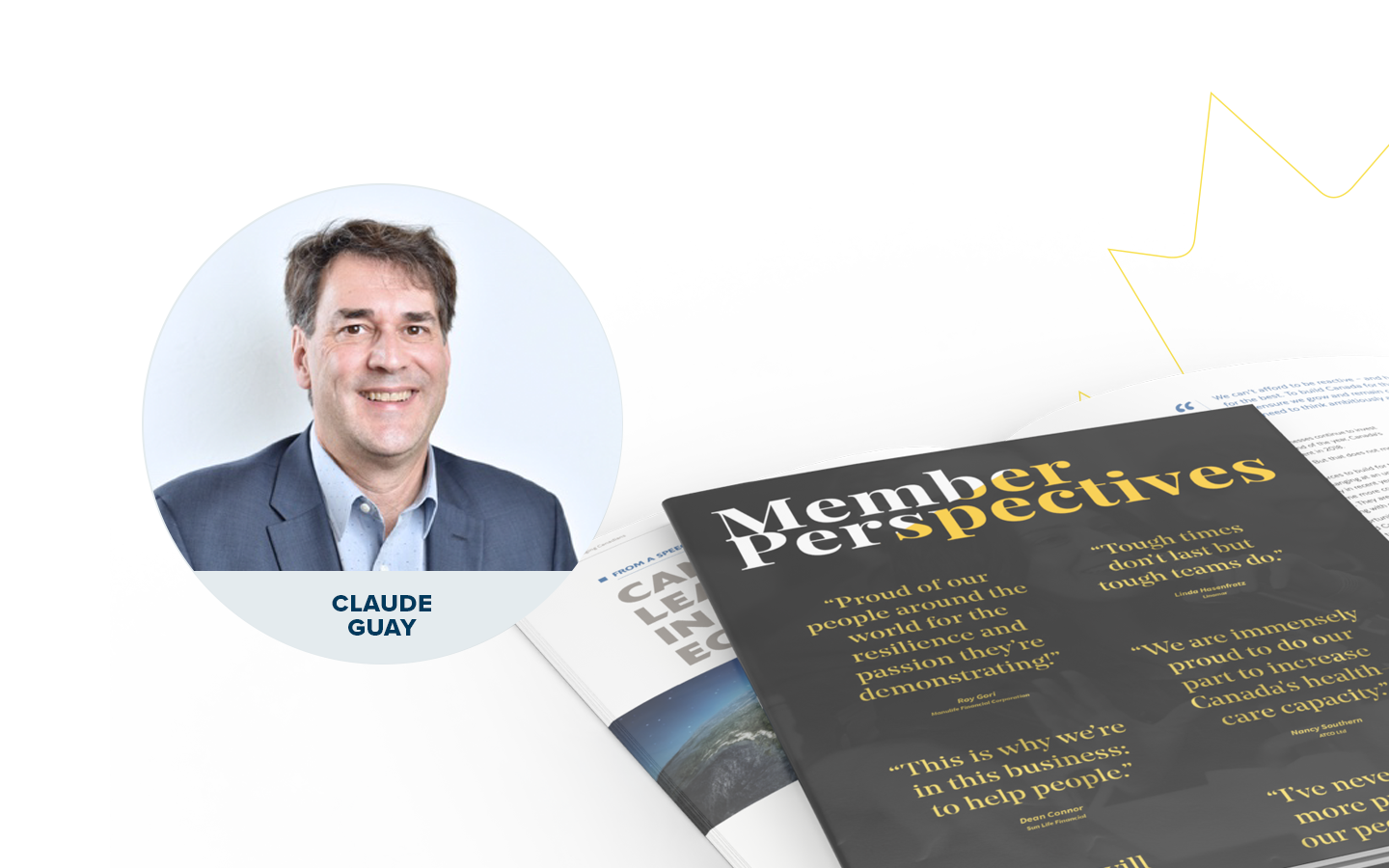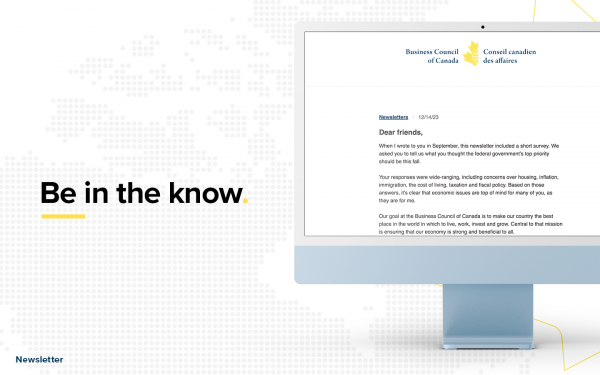Empowering innovators of tomorrow – fighting climate change one idea at a time
Written by Claude Guay, published in The Globe and Mail
Until recently, the word “innovation” seldom appeared in job titles or descriptions. Now being innovative is a trait prioritized by employers across all industries. In fact, in its 2020 Future of Jobs report, the World Economic Forum identified innovation and analytical thinking as the No. 1 skill needed for 2025 – something that didn’t even make the list in 2015.
Generally, innovation is associated with technology – artificial intelligence, quantum computing and machine learning are all examples – but it is much more than that. Driving global change through innovation is a monumental endeavour, weaving endless strands of complexities to create what could be a blanket solution. Driving global change through innovation can also begin by taking just one idea and developing it. As Thomas Edison once famously said, “There is a way to do it better. Find it.”
Widespread struggle over the past year has forced almost everyone to find better ways – in science labs for COVID-19 test and vaccine development, in hospitals managing spikes in patient numbers, within the hospitality industry working to stay afloat in the face of mass shutdowns and in homes navigating work requirements and school instruction. Necessity can still be considered the mother of invention.
INNOVATING OUR WAY TO A HEALTHIER PLANET
Innovation is key to advancing our society and enhancing our capacity to solve some of the world’s most pressing problems. While the pandemic has dominated our lives, the dire situation of climate change continues to grow. The UN’s World Meteorological Organization revealed that this past decade was the hottest ever recorded, we have seen an alarming decline of Arctic sea ice, and we are on a trajectory for more occurrences of megadroughts – droughts lasting more than two decades. The urgency is real. And while environmental policies and regulations are critical, a pervasive and thriving culture of innovation is needed to generate ideas and produce solutions.
Such a culture is cultivated when leaders prioritize an environment fertile for creativity and risk, where people feel encouraged and empowered to think big, accept failure and keeping trying.
I truly believe that innovation – delivered through people and supported by technology – is the path to a greener planet and that it is the responsibility of business, government and other institutions to foster an ecosystem that empowers innovators. Former IBM chairman Thomas J. Watson Jr. brought the phrase “treasure wild ducks” into the IBM lexicon, meaning celebrate unconventional thinking and those that look for a new angle on a big problem. It’s a unique approach evidenced by the fact the company has been granted the most U.S. patents each year for 28 years in a row.
The Call for Code Global Challenge is a great example of creating situations that enable impactful innovation. This worldwide initiative representing 179 countries invites developers and problem-solvers to build solutions that address some of the most difficult issues of our time. The challenge for 2020 was focused on COVID-19 and climate change, with a Canadian team being named one of the top five finalists for their app OffShip, which counteracts the carbon footprint of online shopping. Since the challenge started in 2018, it has generated more than 15,000 solutions driven by innovation and delivered by technology.
Another example is the IBM World Community Grid, a long-standing effort provided free of charge to scientists who need massive computing power to study humanitarian issues. It crowdsources power from thousands of computing devices and applies it for projects such OpenPandemics – COVID-19, designed by Scripps Research. It also gives volunteers a sense of empowerment as they join others all over the globe to make a difference.
We have seen that innovation thrives in an environment where the development of skills is considered an imperative. The World Economic Forum has identified active learning and learning strategies as second on its list of the top 10 skills needed for 2025, right under innovation. A sustained commitment to learning is so critical that it is now being considered a career requirement. The report additionally predicts that half the world’s work force will need to reskill within the next five years as a result of the disruption caused by the pandemic and the continuing evolution of automation. With the additional skills gap created by the global acceleration towards environmental sustainability, we are in a perfect storm of both challenges and opportunities.
Innovation in action is the application of curiosity, research, expertise and technology, creating more opportunities, more jobs and a more sustainable environment. And with climate change being one of the most challenging and difficult issues of our time, there must be a concerted effort for Canadian innovators to thrive in a green economy.











